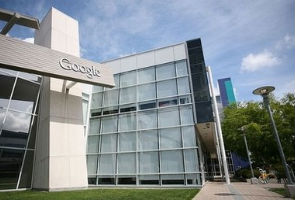
Google and publishers told a US judge on Thursday that they are close to settling a lawsuit over the Internet giant's controversial book-scanning project.
Negotiations between Google and the Authors Guild, which filed suit against Google for copyright infringement with the Association of American Publishers (AAP) six years ago, do not appear to be making as much headway, however.
"We're encouraged by the progress we've made with publishers and believe we can reach an agreement that offers great benefits to users and rights holders alike," Google spokesman Gabriel Stricker said after a court hearing in New York.
Bruce Keller, a lawyer for the AAP, also said the settlement talks were promising.
"We've made enough progress in our discussions with Google that a schedule may not matter," Keller said in a reference to drawing up a calendar for a trial if the settlement talks fail to result in an agreement.
"We'd like to resolve the issue reasonably promptly," AAP president Tom Allen said following the court hearing, adding that it could be a question of "weeks."
Michael Boni, a lawyer for the Authors Guild, told US District Court Judge Denny Chin the guild was preparing to file an amended complaint against Google but wanted to nevertheless continue negotiations towards a deal.
"We'd like very much to continue a settlement dialogue with Google to settle the case," Boni said. "We'd be on a parallel track with litigation to work on a satisfactory settlement."
In March, Judge Chin dealt a major setback to Google's plans for a vast digital library and online bookstore by rejecting a proposed settlement reached between the Internet company and authors and publishers.
The 2008 settlement resulted from a class action lawsuit filed in 2005 by the Authors Guild and the AAP charging Google with copyright infringement over its scanning of millions of books.
The settlement called for Google to pay $125 million to resolve outstanding copyright claims and to establish an independent "Book Rights Registry," which would provide sales and advertising revenue to authors and publishers.
Google opened a Google eBookstore in December, a venture that is separate from Google Books, which was launched in 2004 and has digitized over 15 million books from more than 100 countries.
The Authors Guild and writers from Australia, Britain and Canada filed a separate copyright infringement suit this week against five US universities and the HathiTrust digital library project.
The complaint submitted in the US District Court for the Southern District of New York claims the universities obtained unauthorized scans from Google of an estimated seven million copyright-protected books.
It said the universities, through the HathiTrust consortium, plan to allow unlimited downloads by students and faculty members of so-called "orphan" works -- copyright-protected books whose authors cannot be located.
"By digitizing, archiving, copying and now publishing the copyrighted works without the authorization of those works' rights holders, the universities are engaging in one of the largest copyright infringements in history," the lawsuit said.
Negotiations between Google and the Authors Guild, which filed suit against Google for copyright infringement with the Association of American Publishers (AAP) six years ago, do not appear to be making as much headway, however.
"We're encouraged by the progress we've made with publishers and believe we can reach an agreement that offers great benefits to users and rights holders alike," Google spokesman Gabriel Stricker said after a court hearing in New York.
Bruce Keller, a lawyer for the AAP, also said the settlement talks were promising.
"We've made enough progress in our discussions with Google that a schedule may not matter," Keller said in a reference to drawing up a calendar for a trial if the settlement talks fail to result in an agreement.
"We'd like to resolve the issue reasonably promptly," AAP president Tom Allen said following the court hearing, adding that it could be a question of "weeks."
Michael Boni, a lawyer for the Authors Guild, told US District Court Judge Denny Chin the guild was preparing to file an amended complaint against Google but wanted to nevertheless continue negotiations towards a deal.
"We'd like very much to continue a settlement dialogue with Google to settle the case," Boni said. "We'd be on a parallel track with litigation to work on a satisfactory settlement."
In March, Judge Chin dealt a major setback to Google's plans for a vast digital library and online bookstore by rejecting a proposed settlement reached between the Internet company and authors and publishers.
The 2008 settlement resulted from a class action lawsuit filed in 2005 by the Authors Guild and the AAP charging Google with copyright infringement over its scanning of millions of books.
The settlement called for Google to pay $125 million to resolve outstanding copyright claims and to establish an independent "Book Rights Registry," which would provide sales and advertising revenue to authors and publishers.
Google opened a Google eBookstore in December, a venture that is separate from Google Books, which was launched in 2004 and has digitized over 15 million books from more than 100 countries.
The Authors Guild and writers from Australia, Britain and Canada filed a separate copyright infringement suit this week against five US universities and the HathiTrust digital library project.
The complaint submitted in the US District Court for the Southern District of New York claims the universities obtained unauthorized scans from Google of an estimated seven million copyright-protected books.
It said the universities, through the HathiTrust consortium, plan to allow unlimited downloads by students and faculty members of so-called "orphan" works -- copyright-protected books whose authors cannot be located.
"By digitizing, archiving, copying and now publishing the copyrighted works without the authorization of those works' rights holders, the universities are engaging in one of the largest copyright infringements in history," the lawsuit said.
No comments:
Post a Comment